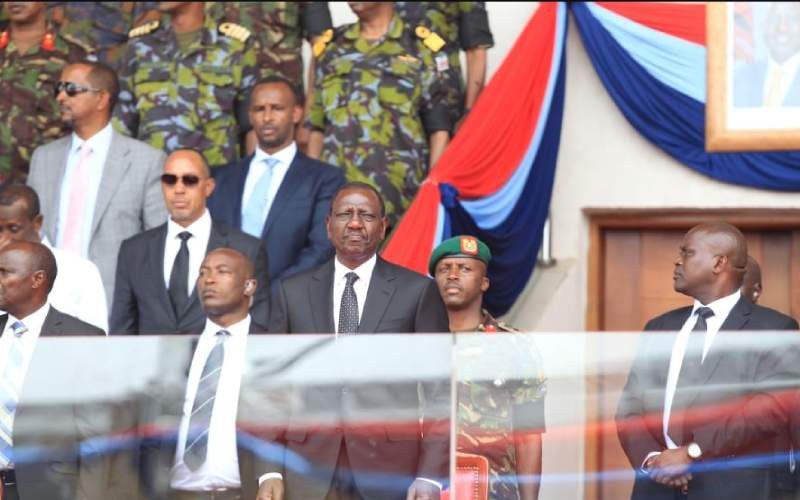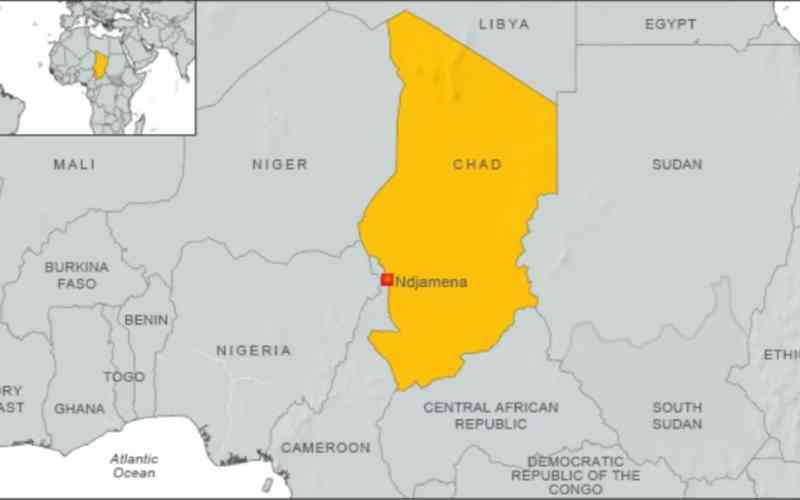In 2010 Parliament passed only 12 Acts, in 2011 41 Acts and in 2012 we have already reached 38 Acts.
The 14.3 million-odd registered voters are getting ready to vote in about three months for presidential, parliamentary and county elections. And what will guide the citizen to vote and make an informed and meaningful choice.
The recent events in Kenyan politics has highlighted that in reality there exists no political party based on policies as say in the USA between the Democrats and the Republicans or as in England between the Conservatives, Labour and Liberals or even in India where the Congress Party prevailed for decades.
Tribal dimension
The Kenyan political parties’ regime – awakening from the slumber of Kanu/Kadu/APP and many others of yesteryears – and then the one party state – have nothing to show in terms of policy, manifestos and political agenda leaving the citizen in a confused state of mind.
The way and manner of emergence of various presidential candidates indicates that politics and political parties is all governed by first, individualistic concerns and thereafter, sadly, but nothing other than tribal dimensions.
In the absence of precise and well publicised stand on burning issues such as crime control, anti-corruption, environment, provision of basic needs such as water, food and energy in the manifestos of the various parties, the voter is completely lost as to how he or she will vote.
Citizens need to know where our agricultural, tourism, mining, health and employment worlds will go in the next five years.
Kenyans should not, and this time round perhaps will not vote on tribal lines, and this will actuate a political force akin to independent candidates without any party allegiance. The startling possibility of successful candidates without party tags being in the majority cannot be disregarded.
Political parties of the day may not be the key actors in major constitutional events such as the formation of the Government and the conduct of elections.
Discreet and invaluable task of training and selection of candidates and enabling the citizens to play a role in policy formation are tragically non-existent.
The Kenyan political party system is not regulated by history or constitutional convention with political parties receiving virtually no attention until the enactment of the Political Parties Act which few politicians know about or will adhere to.
Evolution, perhaps from the pathetically weak, loosely organised, whimsical and fluid political associations of post 2010 Constitution in the era of universal suffrage is taking place most unusually with the intervention of the law.
The reason why there is some sanity in the Kenyan politics is purely because of the intervention of the law.
In recent months the law has been able to depoliticise major issues such as the election date or the one third rule on gender representation and many other political issues have been effectively disposed by the courts.
Stay informed. Subscribe to our newsletter
Political parties have not played any role and have been sidelined and are not even in the periphery.
Neutrality of law
Judges have been able to give their decisions as if they have been derived purely from legal principles even when they are essentially driven by political policy, and whether the Judiciary is coming down the high pedestal into the dust of the political arena is a moot point.
The new-found faith in the Judiciary and the neutrality of the law and claims that it treats all people equally has so far stood well.
Law has successfully taken politics out of injustice on a more day-to-day basis, an indicator of some political maturity in Kenya.
The Political Parties Act deals with all aspects of political parties from the registration to coalitions to mergers and the funding and there is a Political Parties Dispute Tribunal with even a code of conduct for political parties.
The law is also closely linked to the Elections Act.
Political maturity
What remains to be seen is whether individuals, political parties and even all the law enforcing agencies will strictly follow and apply the law before, during and after the election process.
It is important for political parties, or read leaders of tomorrow, to tell Kenyans now how in their duty of enacting new laws during the next five years are they going to deal with various burning issues for the betterment of Kenyans.
A time has come in the history of our country when political parties should bloom on substance of political thought and not other considerations of convenience, tribal manipulation.
The courts remaining apolitical is something which the voter and the political parties must be vigilant about.
The writer is a lawyer.
[email protected]
 The Standard Group Plc is a
multi-media organization with investments in media platforms spanning newspaper
print operations, television, radio broadcasting, digital and online services. The
Standard Group is recognized as a leading multi-media house in Kenya with a key
influence in matters of national and international interest.
The Standard Group Plc is a
multi-media organization with investments in media platforms spanning newspaper
print operations, television, radio broadcasting, digital and online services. The
Standard Group is recognized as a leading multi-media house in Kenya with a key
influence in matters of national and international interest.
 The Standard Group Plc is a
multi-media organization with investments in media platforms spanning newspaper
print operations, television, radio broadcasting, digital and online services. The
Standard Group is recognized as a leading multi-media house in Kenya with a key
influence in matters of national and international interest.
The Standard Group Plc is a
multi-media organization with investments in media platforms spanning newspaper
print operations, television, radio broadcasting, digital and online services. The
Standard Group is recognized as a leading multi-media house in Kenya with a key
influence in matters of national and international interest.








